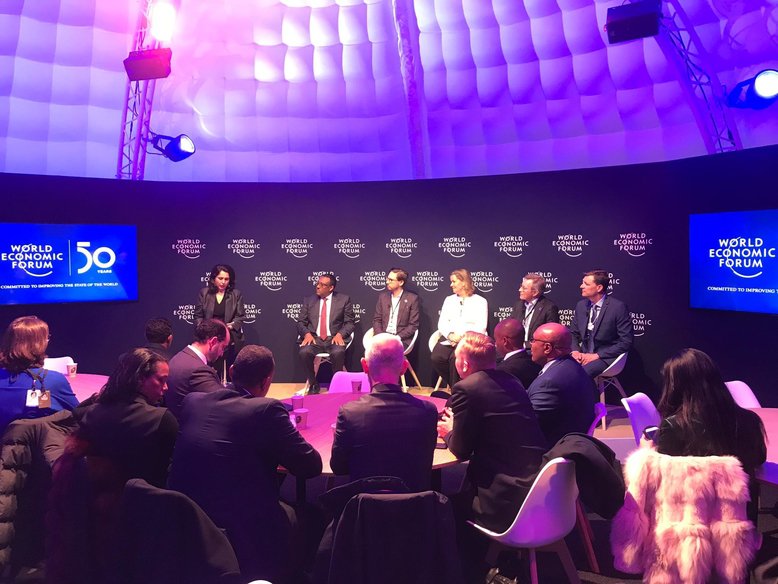At this year’s World Economic Forum in Davos, we partnered with the Ikea Foundation to convene a high-level roundtable on unlocking opportunities for growth in Ethiopia. Government and industry leaders from the region and beyond shared views on how to create better educational and job opportunities in the country, particularly for youth, women and refugees. Below I share some of the top takeaways from the discussion.
1. Ethiopia is booming
Economic growth in Ethiopia has averaged 10.5% since 2004, which is twice the average of the rest of the continent. Foreign direct investment is also increasing (fourfold from 2012 to 2017), and the government is investing heavily in infrastructure, including road networks and airlines, to promote further capital into the country. Concentrated efforts to boost industrial production and manufacturing are now widely regarded as an economic model that other countries in the continent should emulate.
2. Key challenges remain
To unlock more opportunities for growth, Ethiopia will need to address some critical barriers to investment, including access to foreign exchange, internet connectivity, and infrastructure. Prime Minister Abiy Ahmed is mobilising stakeholders to address these structural problems and drive political, economic, and legal reforms needed to create a better environment for investment and entrepreneurship.
3. Investors need to be patient and purposeful
Ethiopia needs to overcome short-termism and bring the right brands to the country to achieve sustainable growth. For example, the telecommunications market is ripe for competition following the liberalisation of the sector in 2012 and Ethiopia’s young population is perfectly placed for the fast adoption of new technologies. This is not only good for the consumer, but also for driving further innovation and digital inclusion.
4. We need to think holistically about the drivers of economic growth
Investing in health and education has positive macroeconomic impacts. Ethiopia’s demographics, including its youth who make up 70% of the current population; women, who mostly remain an untapped talent pool; and refugees, who make up the second largest refugee population in Africa, are a huge resource which must not be overlooked.
5. Collaboration is vital
The government will need to be pragmatic and progressive to overcome investment challenges. It must work with businesses and civil society to create training and job opportunities. Businesses have the capital, technology, and expertise, while philanthropy can play a role in de-risking investment by providing financing for companies. Local civil society organisations are also important for deepening democracy. Their understanding of local challenges helps enable people to take care of themselves and become self-reliant.
This conversation will continue at the upcoming World Economic Forum in Ethiopia in September 2020.

